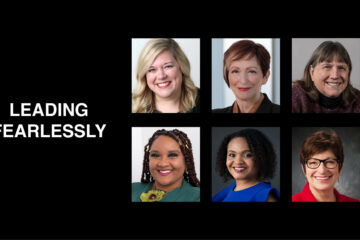Editor’s note: To usher in the new year, we asked more than a dozen women who live across the state to write about their hopes, dreams, and things to keep in mind for women’s advancement and gender equity. Read the full collection of columns here.
By Rachelle Keck

Women are currently earning 60% of college degrees at all levels. Only 37% of male high school graduates attend college, compared with 44% of females. This dichotomy may arise from necessity – women frequently need an “extra” degree to compete.
The news media highlights a need for talent across sectors. In response, employers are eliminating the college degree requirement for many positions. Not all talent is created equal, however, and employers are clamoring for workers who possess actual, demonstrated and applied talent.
The differentiator, and the most reliable way to find that talent, has historically been the college degree. Employers know earning a college degree is a long game – requiring vision, stamina, discipline and an intentional, committed investment in self. The college degree symbolizes these characteristics, and employers covet workers who possess them.
Despite recent trends, college degrees will remain valuable. By 2031, 72% of jobs will require post-high school education. A bachelor’s degree or higher will be required for 43% of all jobs and 66% of higher-paying jobs.
Data demonstrates this investment in education by women pays off. The most reliable way to ensure social and economic mobility for all genders is through education. A bachelor’s degree earns workers $1.2 million more than high school graduates; it’s $1.6 million more for those possessing a master’s degree.
A college degree has a bigger impact on female earnings. A four-year degree can increase female earning capacity by 68% as compared with a high school diploma. For men, this increase is only 62%.
Beyond earnings, this investment may pay off in other ways. According to Charles McCollum, women will hold the majority of the leadership roles in our society, similar to the way men hold most of them right now, within 30 years.
Work and research are ongoing to ensure more men pursue and successfully complete education beyond high school, as this decline in male college achievement hurts us all.
As Grand View University’s 14th, and first female, president, Rachelle Keck began her role in July 2022. She began her career as a prosecutor before establishing her own law firm, and in 2014 pivoted to a career in higher education. Prior to coming to Grand View, Keck served as president of Briar Cliff University in Sioux City.


